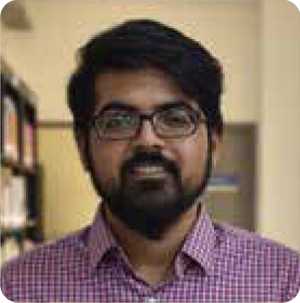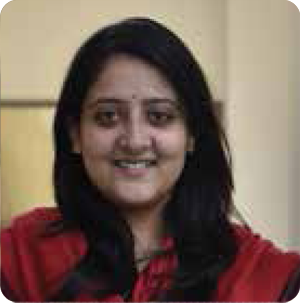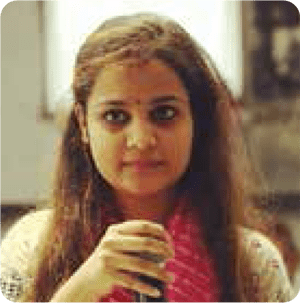
DIRECTOR'S MESSAGE
Dear Readers,
Greetings from the Indian School of Development Management (ISDM)!
We would like to begin with a note of sincere gratitude and appreciation for all the health workers and institutions that helped the country tackle and respond to the extremely challenging second wave of the COVID-19 pandemic. The last few months have been bittersweet for all of us at ISDM. We have had a difficult time during and after the second wave of the COVID-19 pandemic that hit the country mid-March this year. Several of our colleagues and their families were infected with the virus during this phase, and most unfortunately, we lost friends and family members.
ISDM, as an institution, has believed in standing behind its members and students and to help relieve the challenges being faced, the organisation decided to take a pause for a fortnight. During this time, the team only worked on essential operations and focussed their energies towards taking care of their loved ones. Our students and alumni also enlisted their time as volunteers for COVID-19 relief in many states. At the same time, our staff members helped find access to oxygen and necessary health resources for their colleagues and friends.
We are delighted to report that the ISDM family is back on its feet after this pause, and we're braving the odds and helping stay on course to our vision. A lot has been happening at ISDM. We have had quite a few new members join our organisation in different verticals and are already neck-deep in activities towards making ISDM even better, more robust and exciting!
The batch of 2020-2021 of the Post Graduate Programme in Development Management (PGP DM) is now in its last academic term of study. The cohort too has braved several challenges but continued on their learning journey regardless. We have had the privilege of having faculty members and industry leaders of great repute teach and mentor students during the last few months. We have had Prof Baba Prasad, Prof Vinay Dhabolkar, among others steer the teaching-learning journey in the last few terms along with Harish Hande, Magsaysay Award winner from SELCO Foundation who addressed our students for a talk. Our students have also been working on live projects to support efforts of known social purpose organisations as part of their efforts to create strategies for scale. These organisations include IIMPACT, SeSTA, Dhwani RIS, Udhyam and Healing Fields Foundation.
One of the key strengths of ISDM's curriculum and pedagogy is its ability to evolve with shifting contexts while continuing to maintain the foundational pieces. We are excited to welcome the batch of 2021-2022 of PGP DM students in July to an extremely engaging and tech-enabled learning experience. We are grateful that some of the leading faculty members and management experts from across the globe will be joining us and teaching our students this year.
We invite you to peruse the July 2021 newsletter to learn more about the fun and exciting things that our team has been working on.
With wishes for your safety and good health,
|
|
ISDM'S LEARNING PROGRAMMES
IN DEVELOPMENT MANAGEMENT
Faculty at ISDM
The previous terms in the last few months too were filled with learning and engagement for the cohort. Learning Terms VI, VII and VIII at ISDM have exposed students to immersive experience in developing innovative solutions for developmental challenges as systemic transformation can only be achieved by challenging the status quo and going beyond unidimensional solutions.
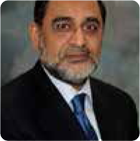
Prof Sujit Kumar teaches selfcurated elective courses in the strategy area at IIM Ahmedabad and Bangalore and non-linear strategic thinking at ISDM. He taught non-linear, out of the box thinking by introducing students to a course on Strategic Innovation for Social Change. |
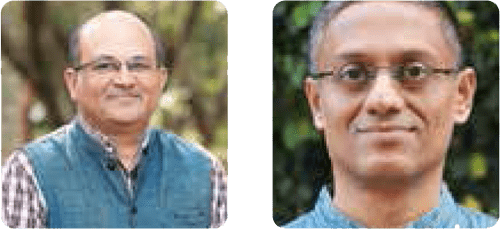
Prof Rishikesha (Director, Indian Institute of Management, Bangalore) and Prof Vinay Dabholkar (President, Catalign Innovation Consulting and visiting faculty at IIM Bangalore and IIT Bombay) taught a course titled "From Jugaad to Systematic Innovation". The course enabled students to practice paradoxical thinking and nurture the ability to observe and understand two opposing ideas simultaneously. |

Prof Baba Prasad, a leading thinker, is an author in the areas of leadership, strategy and innovation in fast-changing environments. He curated and led the whole learning term on Impact for Scale – the last learning term of the programme with a capstone project. |
Development Management – In Practice!
The students of the class of 2020-2021 of PGP DM programme commenced their last learning term at the end of May 2021. This last term, students brought together their training from the previous seven terms to a capstone project. Through the capstone project, ISDM students and faculty members worked with five organisations from the sector towards supporting them in shaping their strategy for scale! The focus was on the questions - what does it mean to scale an eort in social development and how to build a strategy to scale, keeping in mind the vagaries of a VUCA (volatility, uncertainty, complexity and ambiguity) world. Read more here.
The term was led by Prof Baba Prasad. Besides leading the learning sessions himself, Prof Prasad and the ISDM team brought in several leading practitioners and academics to help ensure robust and all-round learning for the students.
Updates from Our Placement Desk
We are thrilled to announce that as on the end of June 2021, more than seven of our students from the PGP DM cohort of 2020-21 were already offered roles in organisations of high repute from different parts of the country! This is significant because the programme for 2021 is yet to conclude and these placements testify the learning and high-quality input students receive.
For the 2020-21 placement cycle, we have had 55 organisations that have shared 130 job descriptions for various job positions. Roles on offer include various mid-to senior-level positions in the domain of programme management, operations, fundraising, communication and engagement, people engagement, monitoring and evaluation, impact evaluation, among others.
Early Placement Partners in 2020-21
Welcoming PGP DM Batch of 2021-2022
ISDM is excited to welcome the PGP DM class of 2021-2022! The academic year begins on July 26, 2021 with a special "Term Zero" devoted to building a core skill set crucial to the initiation into the PGP DM that commences in August 2021. Term Zero includes sessions on preparing MS Excel sheets, data analysis, communication and learning via the case study method with an overarching understanding of India's development story. There is also a session on Personal Mastery for Development Leadership. The programme then runs through 47 weeks across 8 terms with 22 courses and workshops bringing together the core components of management and development in a transdisciplinary pedagogy grounded in praxis. Read more.

CONTINUING EDUCATION
The Executive Education Programme of ISDM engages with senior leaders and managers to leverage opportunities for enhanced and effective responses to challenges faced by organisations. Our goal is to enable social purpose organisations to unleash their full potential and accomplish sustainable impact at scale, relevance and effectiveness. The programme also partners with organisations to support them with customised learning programmes in leadership development and change management.
The ISDM Continuing Education team is engaging with five organisations - IIMPACT, SeSTA, Dhwani RIS, Udhyam, Healing Fields Foundation - to support them in their scaling journey through strategic inputs and capacity-building support. This initiative is structured as the stage 2 engagement of ISDM faculty members and experts in the 'Impact at Scale' projects that our PGP DM students undertook in the past two months. ISDM is glad to institute this exercise as an annual collaborative effort towards investing in nurturing effective and relevant models of scaling enduring impact in the sector.
RESEARCH
IN DEVELOPMENT MANAGEMENT
Ecosystem Study: Benchmarking Talent Management in Indian Social Sector
The study on Benchmarking Talent Management in Indian Social Sector seeks to understand how the social impact sector approaches 'talent' and 'compensation' to help key stakeholder groups address the challenges around organisational talent. The research aims to examine 'what is' in terms of the current talent management practices in the sector and attempts to lay the foundations of 'what it ought to be' in terms of the principles or norms that need to be developed for the emerging sectoral ecosystem.
- The study will enable leaders in the Indian social sector to build strategies conducive to the talent management needs of their organisations.
- Findings will include compensation benchmarking with reliable data on compensation trends for different roles across organisational archetypes, geographies and thematic areas of engagement.
- The findings will facilitate the emergence of a professional, data-informed and transparent ecosystem of knowledge commons on talent management for the Indian social sector.
- The study will enable social purpose organisations, philanthropists, foundations to create a conducive environment to attract, nurture and grow appropriate talent in the Indian social sector.

|
|||
|
|
ISDM Case Centre: Management Cases from Indian Social Sector As we continue our endeavour to co-create knowledge commons on develop-ment management, the ISDM Case Centre is developing 20 case studies on leadership and management practice in the context of the Indian social sector. These case studies, developed as knowledge assets, will bridge the existing knowledge gap on the nuanced yet substantial difference between practice of management in social purpose organisations in alignment with the context and purpose of the development space. ISDM Case Centre invites ecosystem enablers, educators and leaders to join us in our effort to co-create a repository of case studies that make explicit the principles management practice in the context of social purpose organisations. Each case is accompanied with a teaching note and learning resources for use by educators from other higher education institutions. To know more about ISDM cases, please see: cases | ISDM All case studies developed by the ISDM Case Centre are published under Creative Commons Licensing Type Attribution-Noncommercial 4.0 International (CC BY-NC 4.0) with due credit to authors and organisations. |
ISDM Working Papers ISDM announces the launch of its working paper series of emerging new knowledge in the domain of development management. Each working paper brings together empirical data from organisational practice and theoretical frameworks that permit to engage and build normative frameworks of leadership and management practice in social purpose organisations.
Life cycle stages provide a diagnostic tool that enables organisational leadership to anticipate challenges and to navigate transitions. The paper explores stages of growth and development of non-profit organisations and present five life cycle stages of non-profits emerging from literature. It employs a combination of two methods to arrive at the findings of this paper: (a) A systematic review of literature on non-profit life cycle models and (b) A longitudinal case study over four decades of PRADAN, a successful non-profit rural development organisation in India. |
KEY PARTNERSHIPS

|
ISDM is thrilled to partner with Ford Foundation in establishing a Centre of Philanthropy for Social Justice. The Centre will work towards strengthening the ecosystem for appropriate and much-needed investments in issues of social justice and human rights. As part of the partnership, Ford Foundation has funded the Centre with a core grant of $400,000 for the next three years. The grant shall enable the Centre of Philanthropy for Social Justice incubate the much-needed knowledge infrastructure to support social purpose organisations, including philanthropies, foundations, NGOs, ecosystem enablers and other civil society groups towards making data-informed and effective investments. To know more about ISDM partners, click here. |
|
Welcome Ms Preeti Misra Shenoy! Ms Shenoy is joining ISDM as the Non-Executive Director of ISDM's Statutory Body. She is an entrepreneurial sales and management strategist with more than 30 years of experience. Ms Shenoy is credited with having pioneered the concept of CSR in IT services firms. Of a career spanning 30 years, she spent 15 years in leading technology services and product sales in Asia. She continues to be on the board of many companies and also associated with organisations like Samhita and QUEST. |
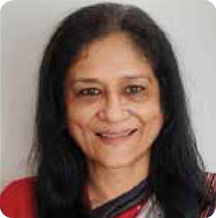
|
LIFE AT ISDM
Development Managers in Action
We bring you a quick look at what some of our 200+ alumni are doing as Development Managers in the sector and the field. We are extremely proud of the work and efforts of all our alumni.
|
|
COVID-19 Relief ISDM Students' Response to the COVID-19 Pandemic
As they continued to be trained and mentored to become future leaders and development managers under ISDM's PGP DM, many of our students continued to be driven and empathetic towards other and remained at the forefront of helping those in need through their initiatives during the second wave of COVID-19 earlier this year. Read more here.

Krishna Vamshi, Blood Warriors |

Sandeep Kumar, DigiSwasthya |

Shashwat Kotambkar, Kazwa |
Welcoming New Members to the ISDM Family!
As ISDM progresses in its journey, our family is strengthened by the addition of new members to the team. We cannot be more delighted to introduce them!
|
|
WHAT ARE WE READING?
Here's a peak into what our students, faculty and staff are reading
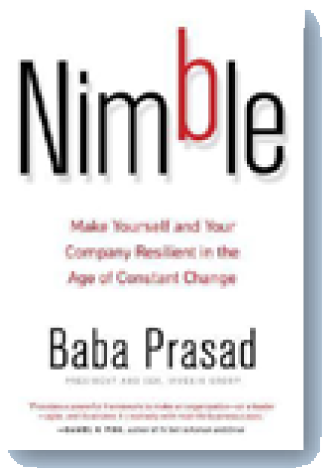
|
Prasad, B. (2018). Nimble: Make Yourself and Your Company Resilient in the Age of Constant Change. Penguin. The only certainty in the world is uncertainty. Based on this premise, Prof Baba Prasad pushes the reader to broaden the understanding of strategy and prepare oneself and their organisations to deal with change. The book takes strategy from an exercise in planning for future actions, to using strategy for building capabilities to withstand change. It connects human intelligence to business or organisation agility, and offers a framework of five agilities—analytical, operational, inventive, communicative and visionary – which one can use to prepare for the uncertain future. Citing examples from diverse fields like nature, human history, space exploration, business, among others, the book offers readers tools and techniques to become nimble and agile. |
Recent research and publications
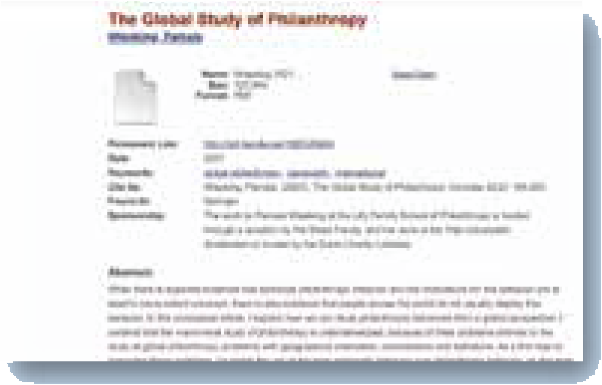
|
Wiepking, P. (2021). The Global Study of Philanthropy. Available at: ISSN 0957-8765. The study brings together insights on how philanthropic behaviours and motivations can be understood from a global perspective. One of the few empirical literature available in the field from a macro perspective, the study highlights the need to build a shared vocabulary on philanthropy across cultures and geographies towards a collaborative agenda. It repositions 'philanthropy' as 'generosity' and opens a more inclusive agenda repositioning philanthropy as a behavioural pattern with focus on knowledge commons and transparency. |
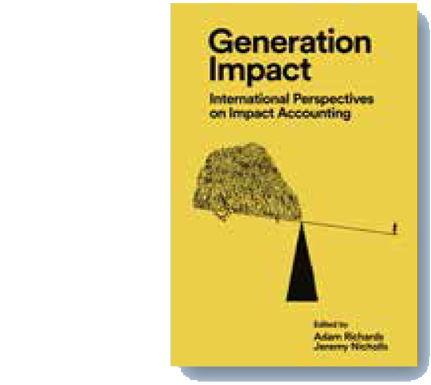
|
Wilson, K. E. (2021). The Imperative for Impact: The Global Context. Generation Impact: International Perspectives on Impact Accounting, 11. The article establishes the need to engage with economic growth models that embrace principles of inclusiveness and sustainability. Wilson, K. E. presents an engaging discussion on existing frameworks and tools, establishing their limited contribution to enabling measurable positive impact that result in increased well-being of stakeholders. The article further makes a case for a more integrated approach by private and public actors towards making more effective resources allocations with measures that seek a sustainable agenda for all and is embedded in accounting and economic models. In doing so, the article lays emphasis on the need for effective and enduring collaborative action between the business, government and civil society for positive social and ecological impact at scale. |
Think pieces
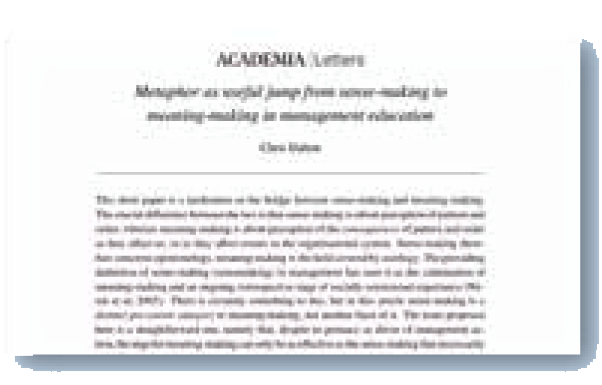
|
Dalton, C. (2021). Metaphor as useful jump from sense-making to meaning-making in management education. Academia Letters, 2. The paper is a meditation on the bridge between sense-making and meaning-making. The prevailing definition of sense-making (sensemaking) in management has seen it as the culmination of meaning-mak- ing and an ongoing, retrospective stage of socially constructed experience (We-ick et al, 2005). There is certainly something to this, but in this article sense-making is a distinct pre-cursor category to meaning-making, not another facet of it. The issue proposed here is a straightforward one, namely that, despite its primacy as driver of management action, the urge for meaning-making can only be as effective as the sense-making that necessarily precedes it. |
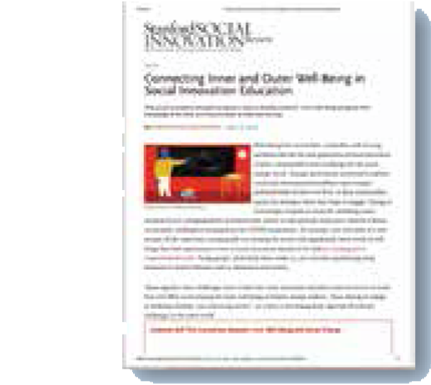
|
Chima, A., & Germano, D. (2020, November 18). Connecting Inner and Outer Well-Being in Social Innovation Education. Stanford Social Innovation Review. Available here. Anil Chima and David Germano bring together efforts and reflections of the WISE network participants into an insightful five-principle framework that helps lead the way for social innovation education programmes like ISDM's to integrate students' well-being alongside their knowledge of the field. ISDM is a member of the WISE network and has been engaging with The Well-being Project towards co-creating enhanced pedagogies of development management education. |
|
Contact Us: C 20/5-6, Sector-62. Noida, Uttar Pradesh 201301. (Opposite JSS Academy of Technical Education) | Phone: +91 99997 88216 | Email: contact@isdm.org.in |
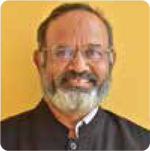
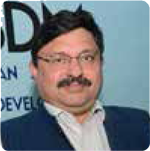
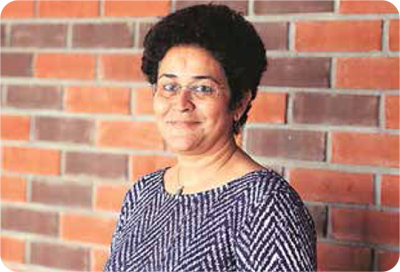
 Somewhere this (social) sector is considered as a bunch of do-gooders and not necessarily a vast pool of highly qualified professionals. Various entities in the sector were individually spending double digit lakhs in compensation benchmarking studies when really, we should be able to count on a sector resource. That was the impulse that guided ISDM and us (CSIP) to create what is in effect a public good for the sector. The study also helps showcase the width and the range of talents that the sector today houses and is increasingly looking for in terms of skill sets.
Somewhere this (social) sector is considered as a bunch of do-gooders and not necessarily a vast pool of highly qualified professionals. Various entities in the sector were individually spending double digit lakhs in compensation benchmarking studies when really, we should be able to count on a sector resource. That was the impulse that guided ISDM and us (CSIP) to create what is in effect a public good for the sector. The study also helps showcase the width and the range of talents that the sector today houses and is increasingly looking for in terms of skill sets.


